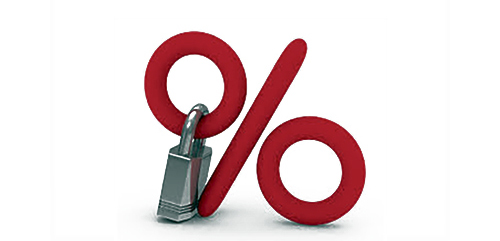Interest Rate Type
Also known as "Amortization Type", loan programs are separated into two major groups based on whether the interest rate is fixed or if it's adjustable and can change later.
Fixed Programs

When a loan's interest rate is "fixed", that means that it won't change during the course of the loan. i.e. If you have the loan for 30 years, the interest rate won't change for 30 years. Most people like this kind of loan because this usually means that their monthly mortgage payment won't change.
ARM Programs

ARM stands for "adjustable rate mortgage". When a loan's interest rate is "adjustable", this means that it can change. ARM loans today are typically fixed for a period of time before they start to change.
Notation (10/1, 7/1, 5/1, 3/1)
The Rate (Index, Margin)
Program Types
Loan programs are further separated into different categories based on either loan amount or qualification requirements.
Regular Loans
Follow "normal" guidelines and requirements - Best Rates
These are loans that meet the Fannie Mae and Freddie Mac guidelines in terms of documentation and qualification. They are, however, separated into three different categories based on loan amount.
Standard Programs
Loans < $453,100
(All Areas)

These are loans that fall under the conforming loan limits set by the Federal Housing Finance Agency.
High-Balance Programs
$453,100 < Loans < $679,650
(Only in High-Cost Areas)

For certain locations, the median home value is more than the conforming loan limit, so the Federal Housing Finance Agency establishes a higher loan limit just for these areas. In these areas, loans greater than the conforming loan limit, but less than the maximum loan limit are considered “high-balance” loans.
Jumbo Programs
$453,100 < Loans
($679,650 in High-Cost Areas)

Loans that exceed the maximum loan limits for the area are considered “non-conforming” or “jumbo” loans.
Portfolio Loans
Follow "special" guidelines and requirements - Higher Rates
While regular loans – standard, high-balance, jumbo – may be traded between different financial institutions, there are some “portfolio” loans that will typically stay with a lender. These loans are special products created by a lender and can have various differences in qualifications and documentation that go above and beyond the standards set forth by Fannie Mae and Freddie Mac. Due to their higher-risk nature, the interest rates for these are typically higher than regular loans for the same loan amount.
Now that you understand some of the features of loan programs, go check out what we offer
